January 3, 2025 | 00:52 GMT +7
January 3, 2025 | 00:52 GMT +7
Hotline: 0913.378.918
January 3, 2025 | 00:52 GMT +7
Hotline: 0913.378.918
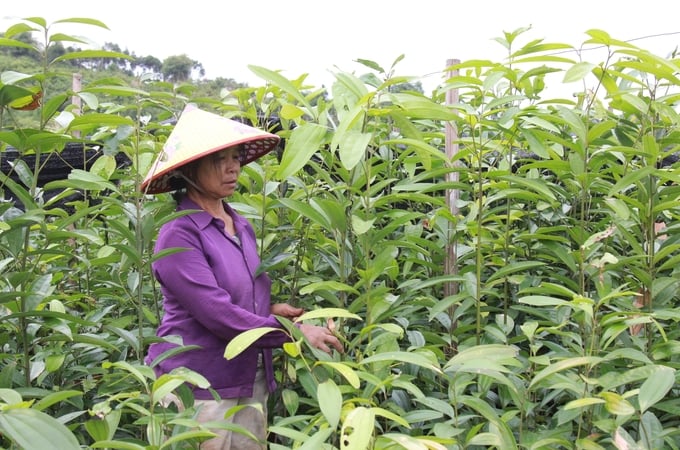
The cinnamon seed garden is taller than a person's head, but without buyers, nursery workers face many difficulties. Photo: Thanh Tien.
For nearly a decade, Ms. Le Thi Them's family in Dao Thinh commune, Tran Yen district, Yen Bai, has dedicated efforts to establishing a cinnamon nursery. They source seeds from households in the Van Yen district, renowned for the province's highest quality seed supply.
In the initial years, Ms. Them's nursery thrived, planting 300,000 seedlings annually. They sold their entire yield with a flourishing demand, earning substantial annual revenue. Encouraged by this economic success, Ms. Them's family expanded the nursery area by utilizing available farmland and yards. However, since 2022, the cinnamon market has stagnated, leaving them and numerous households in the commune grappling with challenges.
Ms. Them shared, "Our family's nursery houses around 340,000 cinnamon seedlings. The cost per cinnamon tree is approximately 400 VND, covering expenses such as seed acquisition, fertilizers, labor for potting, weeding, and care. Previously, each seedling sold for 700 to 1,200 VND, enabling garden owners to profit between 300 and 900 VND per tree. However, in the last two years, the demand for cinnamon seedlings has plummeted, resulting in excess cinnamon in our gardens. Beds with cinnamon older than two years and standing over a meter high have no takers. Even for one-year-old cinnamon, occasional retail buyers offer prices below production costs, forcing us to sell at a loss (at only 250 to 300 VND per tree) to recover investment capital. Over the past two years, the anticipated loss amounts to over 500 million VND."
This stagnation of cinnamon varieties is pervasive across almost all nurseries in Tran Yen district, particularly in the renowned cinnamon hub of Bao Dap. The cultivation of forestry plant nurseries took root in this area as early as 2008, starting with a few nurseries producing about 10 to 200,000 trees per year. Witnessing the lucrative nature of the business, the entire village and commune eagerly embraced this venture, flattening land to establish nurseries. By 2020, the commune even formed a cooperative dedicated to forestry plant variety production, involving over 250 households primarily nurturing cinnamon seedlings. During its peak, the commune raked in nearly 20 billion VND annually from the sale of these seedlings.
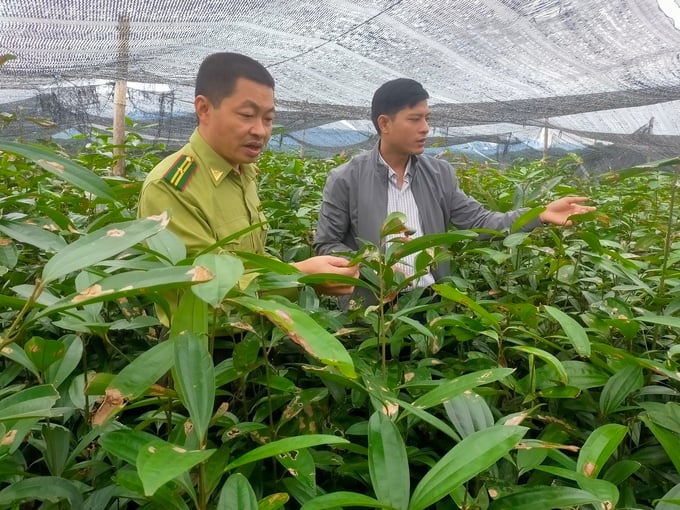
Many cinnamon beds are 2 years old and cannot be sold; people are indifferent to caring for them. Photo: Thanh Tien.
Mr. Nguyen Van Nguyen, Vice Chairman of the People's Committee of Bao Dap Commune, explained, "In the heyday of seedling production, the commune was churning nearly 10 million seedlings annually. However, among the 250-plus production households, only four establishments officially registered as forestry tree nursery businesses. Faced with this booming development, the commune government proactively disseminated information, especially to organizations and individuals in producing and trading forestry plant varieties, stressing the need for careful consideration and stable market outlets for their produce."
Furthermore, the commune collaborated with the Forest Ranger Department to encourage households involved in forestry plant seed production to adhere strictly to forestry production and business procedures. Despite these efforts, only a few households committed to this process. Many failed to comply with prescribed procedures due to the largely spontaneous nature of their activities and a lack of permanent positions. In contravention of regulations, some households faced government reminders and fines for altering the use of production land and arbitrarily leveling fields to establish seedling nurseries. This chaotic scenario has added to the challenges faced by the struggling cinnamon industry in the region.
The exponential growth in quantity and scale has precipitated a crisis of overproduction, leading to a drastic decline in the price of cinnamon seeds. Despite cinnamon trees' commendable quality and aesthetic appeal, the market still needs buyers. As the young cinnamon trees in nurseries continue their unchecked growth, a dilemma arises: "If abandoned, they invoke pity, and if retained, a sense of guilt ensues." Urgent measures are imperative to avert further economic losses, especially considering these oversized seedlings are challenging to manage, lack buyers, and unconverted land remains unprofitable.
Tran Yen district presently hosts over 500 establishments and households engaged in producing and trading forestry plant varieties. Among them, five organizations and over 500 households collectively nurture more than 20 million seedlings annually, with a predominant focus on cinnamon trees. The surplus in nurseries across the district hovers around nearly 8 million seedlings.
Mr. Nguyen Dinh Thinh, Deputy Head of the Tran Yen District Forest Ranger Department, noted, "Out of the 500-plus organizations and households trading in seedlings, a mere 19 establishments possess licenses. The remaining almost 500 establishments engage in free-market seedling production."
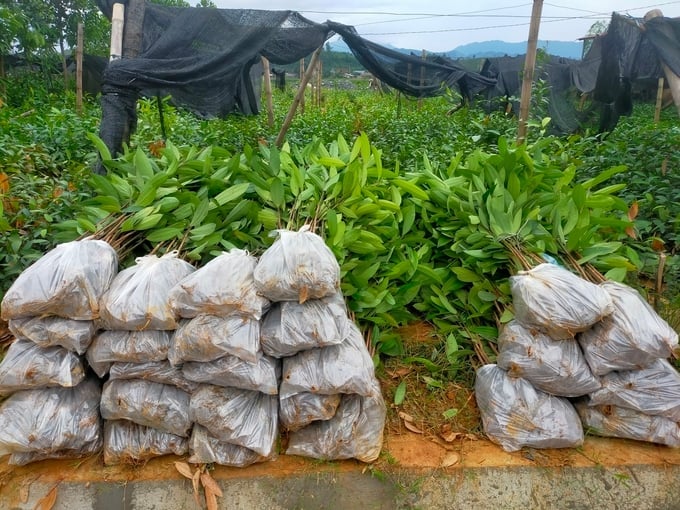
The spontaneous massive development of nurseries has made it difficult for households and the management of functional agencies. Photo: Thanh Tien.
The Forest Protection Department annually urges local forest rangers to disseminate information and monitor the seed production and trading processes at establishments, particularly those of a spontaneous nature. Most nurseries operate on a small, makeshift scale, adapted seasonally and designed based on personal experience and needs. Many households involved in seed production and trade lack business registration and fail to comply with regulations regarding the chain of custody seed production process. The produced seedlings often hail from unselected seed sources, as these households primarily purchase seeds from neighboring areas.
This situation exacerbates the ongoing challenges faced by the cinnamon industry in Tran Yen district, necessitating coordinated efforts to address the crisis and establish sustainable practices for the future.
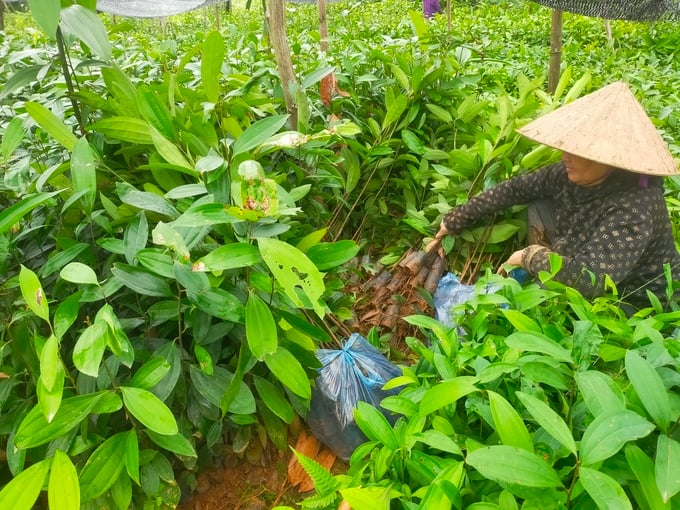
Forest growers need to choose reputable seed gardens to avoid buying poor quality seeds. Photo: Thanh Tien.
Failure to effectively manage the quality of cinnamon seed sources and mitigate spontaneous overgrowth yields immediate consequences for nursery workers, resulting in substantial financial losses. Over the long term, the repercussions escalate for production forest growers, magnifying the impact several-fold. Inferior seedling quality prolongs the growth period, giving rise to pests and diseases that adversely affect productivity and compromise the quality of raw material areas. Urgent attention to seed source quality and proactive measures to control spontaneous overgrowth are imperative to safeguard the economic sustainability of nursery workers and mitigate far-reaching consequences for production forest growers.
Translated by Quynh Chi
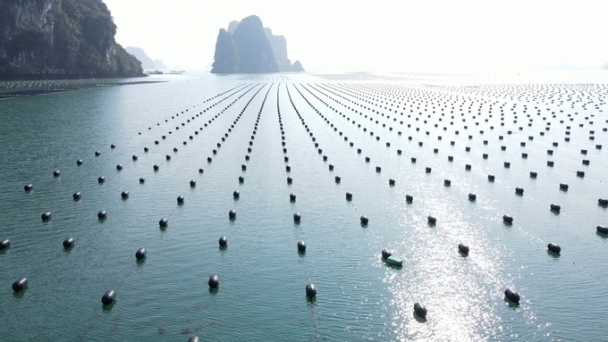
(VAN) Deputy Minister of Agriculture and Rural Development Phung Duc Tien emphasized this at the conference on ‘Development of mollusk and seaweed production’ held on the morning of December 26 in Nam Dinh.
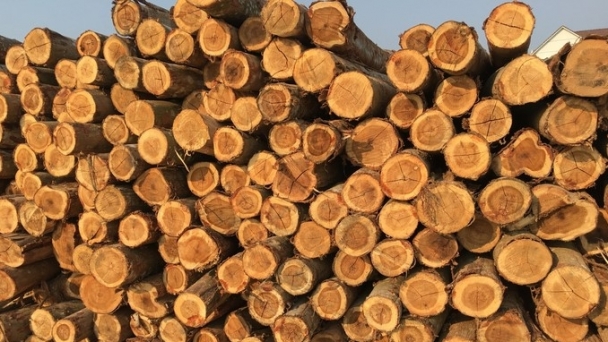
(VAN) Small planted forest timber is currently priced at 1.5 million VND/ton; large timber is priced at up to 1.8 million VND/ton; large timber with FSC certification is priced 20-30% higher than normal large timber.
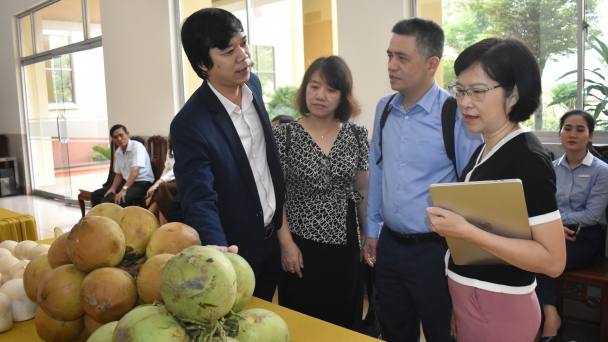
(VAN) The Vietnam Coconut Association has noted that the water coconut industry is thriving in Vietnam. Nevertheless, its development is still uneven, suggesting that there is a substantial untapped opportunity to attract foreign investors.
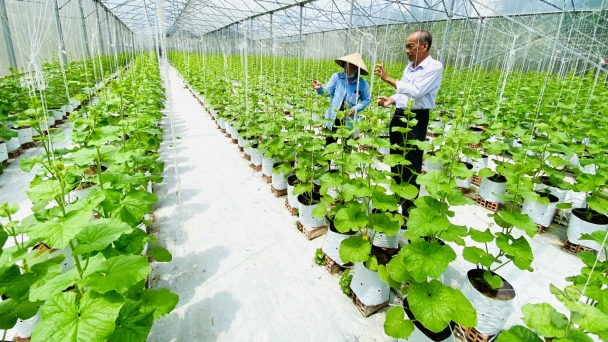
(VAN) According to the development plan for Can Tho in the 2021-2030 period, with a vision for 2045, the city will establish 7 high-tech agricultural zones and 2 concentrated livestock breeding areas.
/2024/12/17/1117-0-nongnghiep-231112.jpg)
(VAN) Spirulina products of a young girl in Da Nang city are currently not only present in many major provinces and cities in the country but also exported.
/2024/12/17/5810-1-194622_403.jpg)
(VAN) From a seemingly worthless waste product, cassava residue in Tay Ninh has become an important source of revenue for starch processing enterprises.
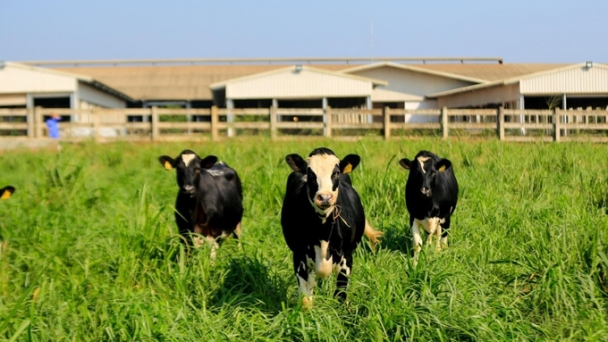
(VAN) The cattle herd at TH organic dairy farm enjoys an antibiotic-free diet of certified organic feed and exposure to sunlight that boosts their physical activity and natural immunity.